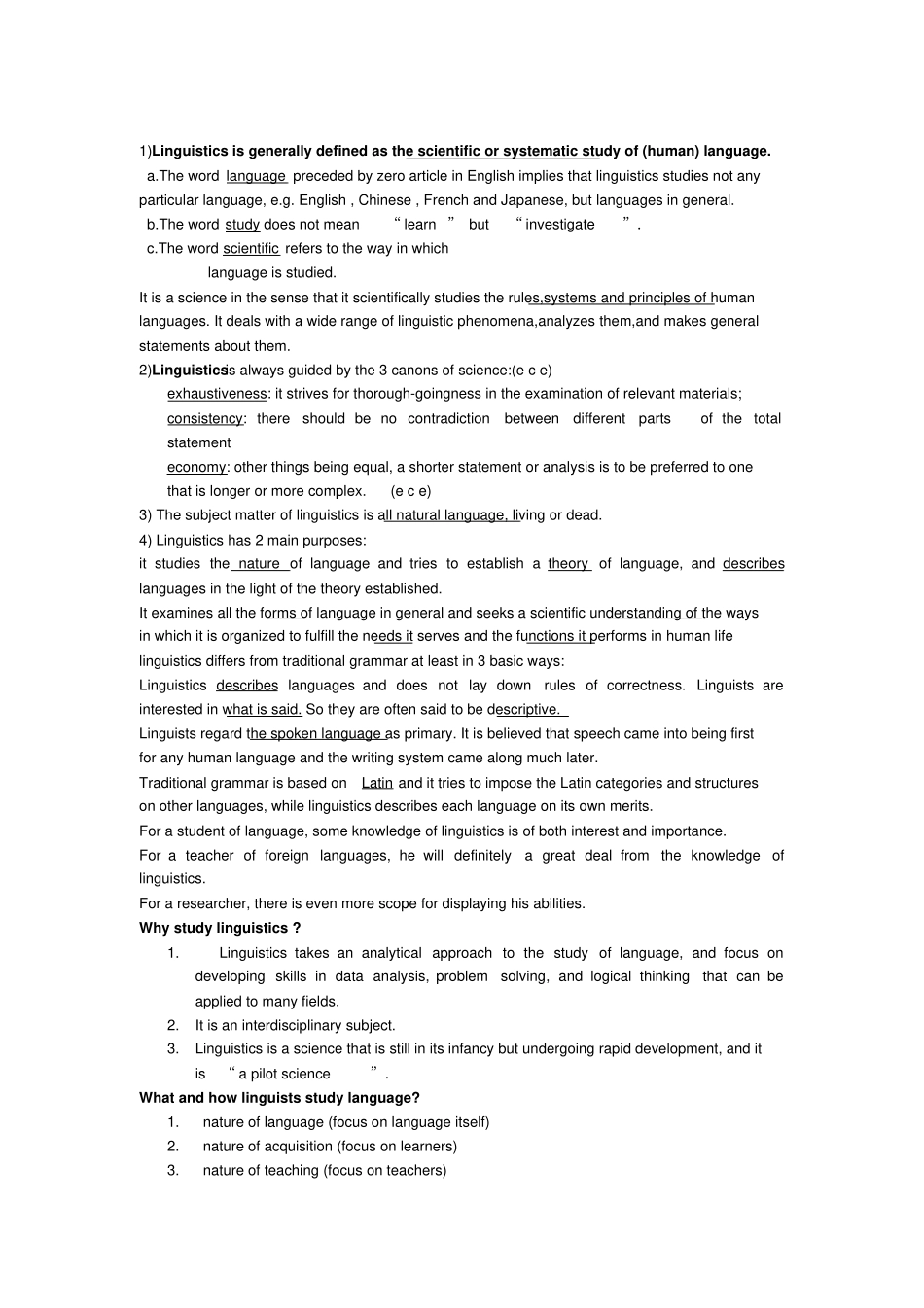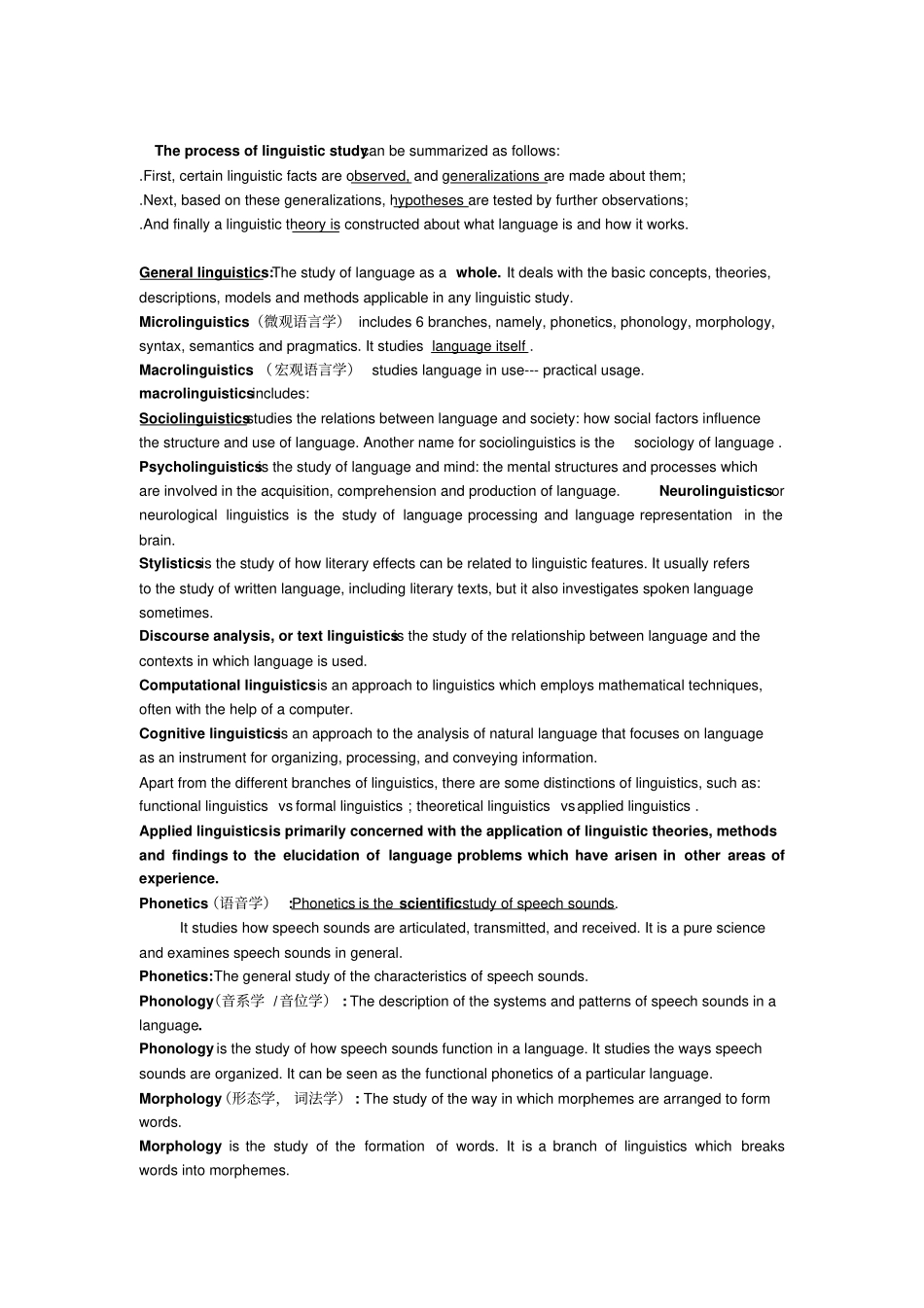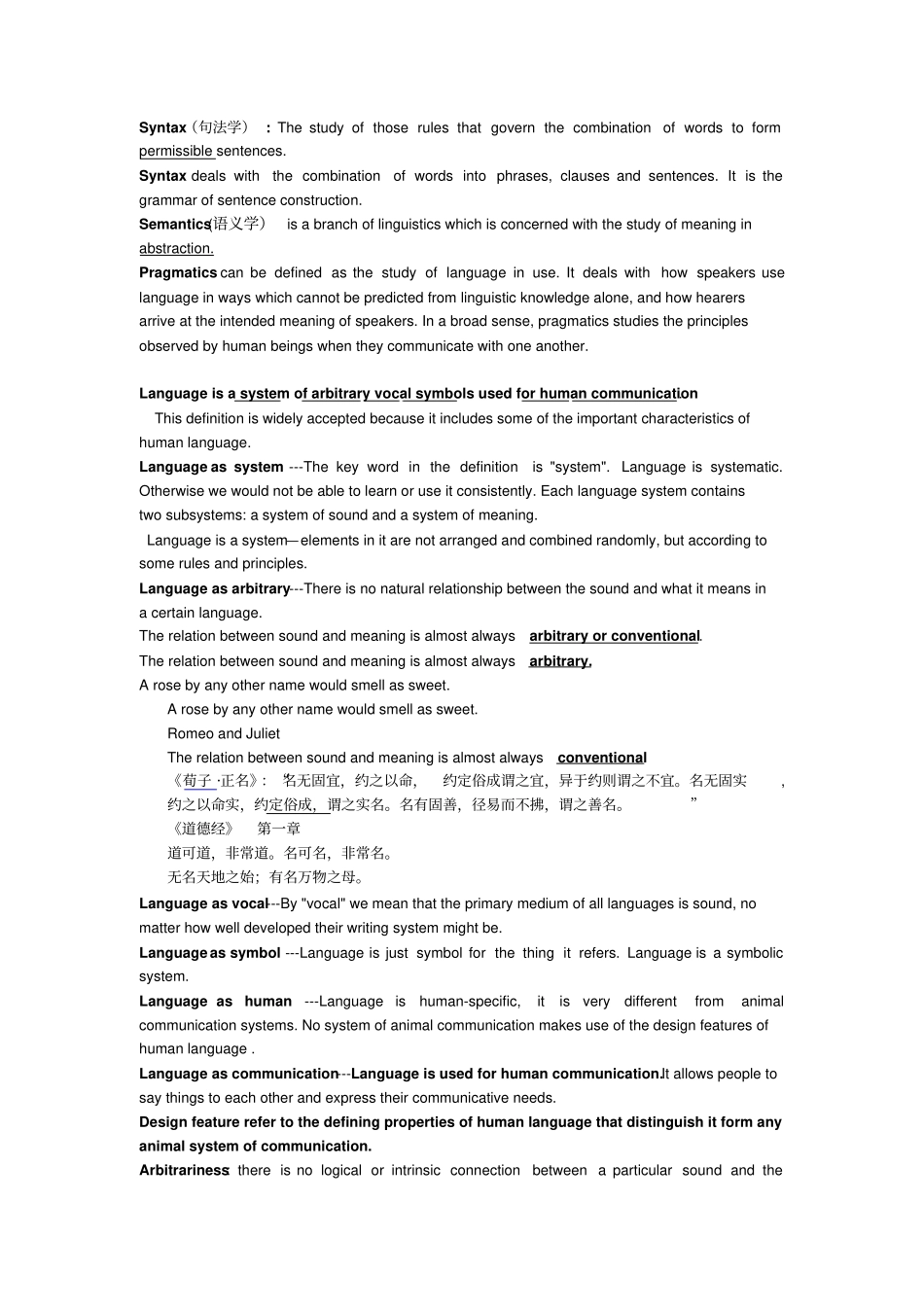1)Linguistics is generally defined as the scientific or systematic study of (human) language. a.The word language preceded by zero article in English implies that linguistics studies not any particular language, e.g. English , Chinese , French and Japanese, but languages in general. b.The word study does not mean “ learn ” but “ investigate”.c.The word scientific refers to the way in which language is studied. It is a science in the sense that it scientifically studies the rules,systems and principles of human languages. It deals with a wide range of linguistic phenomena,analyzes them,and makes general statements about them. 2)Linguistics is always guided by the 3 canons of science:(e c e) exhaustiveness: it strives for thorough-goingness in the examination of relevant materials; consistency: there should be no contradiction between different parts of the total statement economy: other things being equal, a shorter statement or analysis is to be preferred to one that is longer or more complex. (e c e) 3) The subject matter of linguistics is all natural language, living or dead. 4) Linguistics has 2 main purposes: it studies the nature of language and tries to establish a theory of language, and describes languages in the light of the theory established. It examines all the forms of language in general and seeks a scientific understanding of the ways in which it is organized to fulfill the needs it serves and the functions it performs in human life linguistics differs from traditional grammar at least in 3 basic ways: Linguistics describes languages and does not lay down rules of correctness. Linguists are interested in what is said. So they are often said to be descriptive. Linguists rega...


